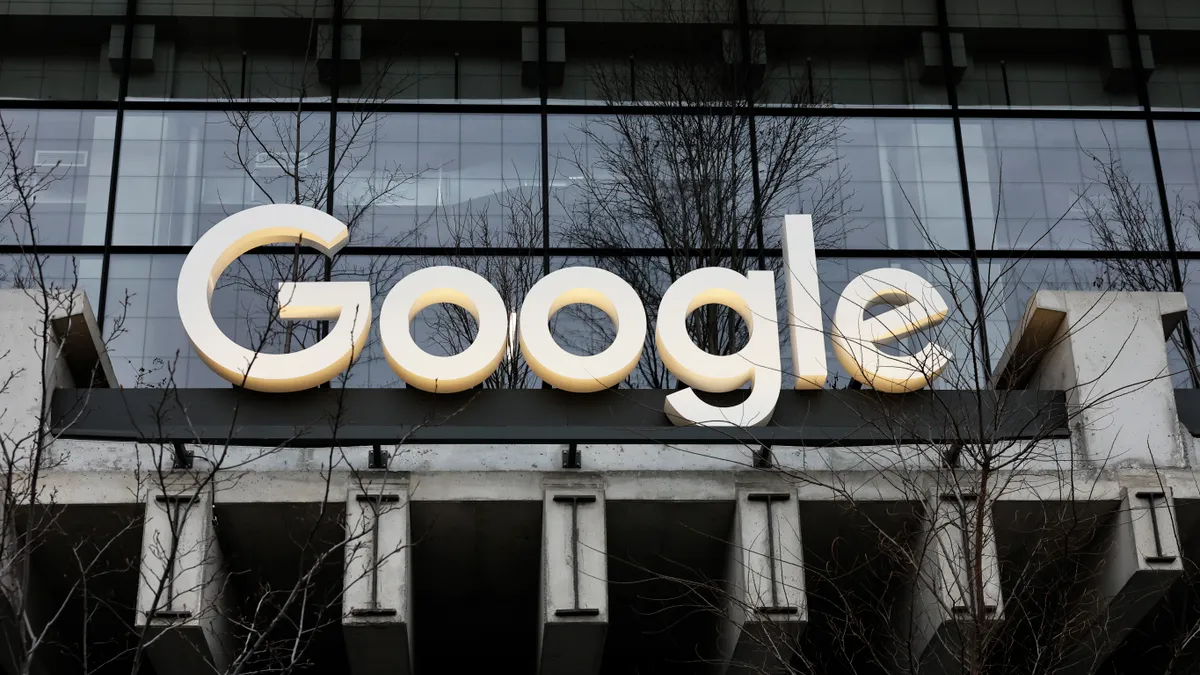Dive Brief:
- Google is partnering with Danfoss to implement sustainable cooling systems at the tech giant’s data centers and to design systems that reuse the excess heat produced by these data centers, the companies said in a Tuesday release
- Danfoss’ high-efficiency compressors will improve energy efficiency and decarbonize heating and cooling systems in Google’s data centers. Heat reuse modules will provide a renewable energy source that can supply heat on-site or to neighboring commercial and residential buildings and industries, according to the release.
- The agreement is expected to help support Google’s goal of running its data centers and offices on 24/7 carbon-free energy by 2030, Google Vice President of Data Center Innovation J.P. Clausen said in the release. The company achieved 64% of that goal in 2022, down from 66% in 2021, according to Google’s 2023 Environmental Report.
Dive Insight:
In that report, Google noted that its decarbonization efforts will focus on slashing scope 2 emissions, primarily associated with electricity demand at its data centers, representing 24% of its total emissions footprint. Google said this strategic emphasis is due to the greater degree of direct control it has over its facilities than other parts of its value chain. The company also noted that heat recovery is a key part of its office development strategy, “because reusing heat often requires less energy than creating new heat.”
The agreement between Google and Danfoss builds on an existing collaboration between the two companies, with both helping to found the Net Zero Innovation Hub in Denmark in September. The hub seeks to advance sustainability measures in data centers. Moving forward, Danfoss’ decarbonization solutions will be used to a greater extent to advance data center sustainability in North America and Europe, it said.
Danfoss develops heating, cooling, power conversion, industrial machinery and motor control products and provides engineering services. As part of the agreement, Danfoss will lend its expertise in data center energy efficiency and sustainable heating and cooling, while implementing Google Cloud’s generative AI capabilities to optimize customer experiences, streamline internal work processes and boost productivity across its teams, the companies said.
The multinational engineering group said that by leveraging Google’s generative AI capabilities, it can collect and present information, automate knowledge, generate product descriptions and develop solutions through e-commerce chatbots.













